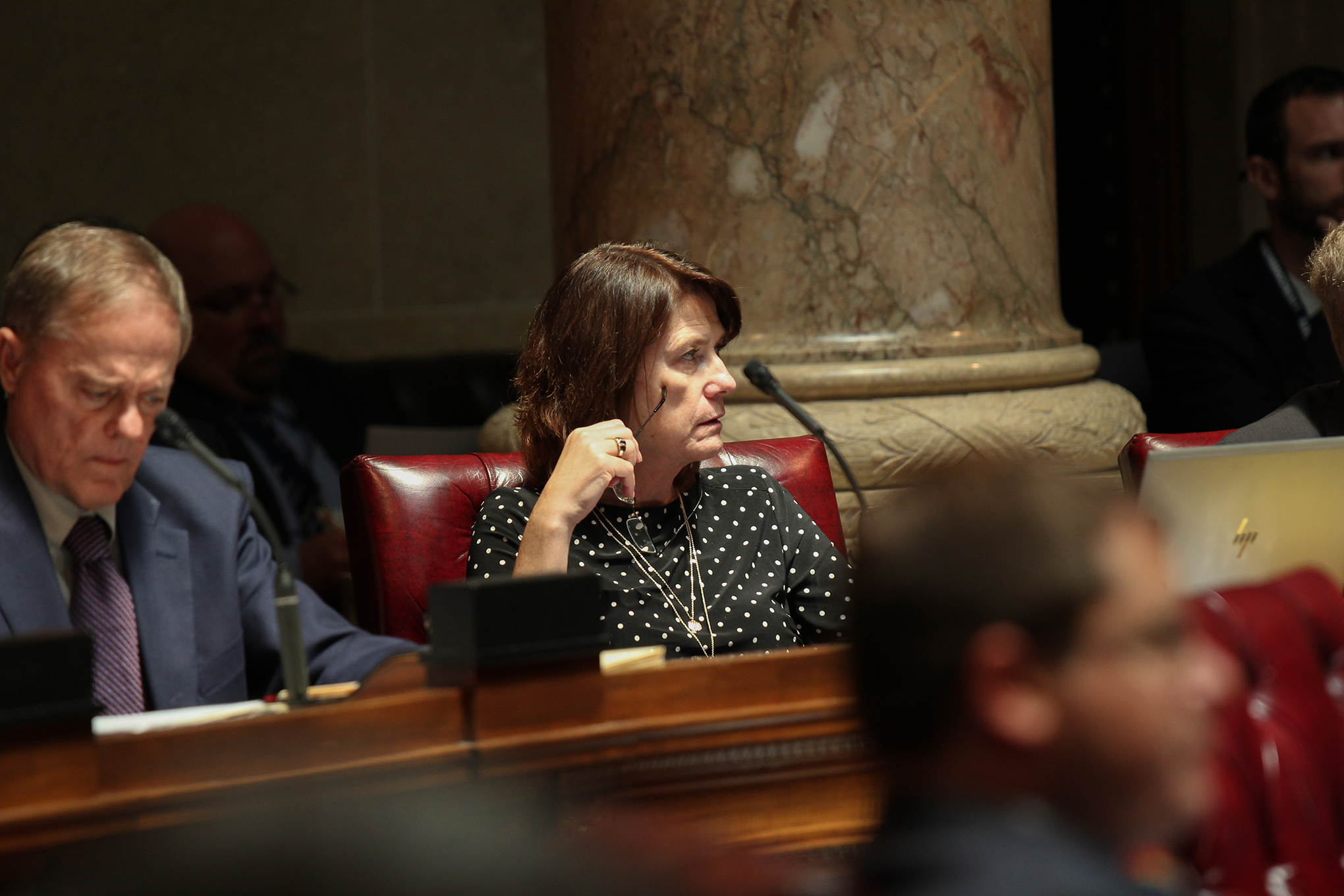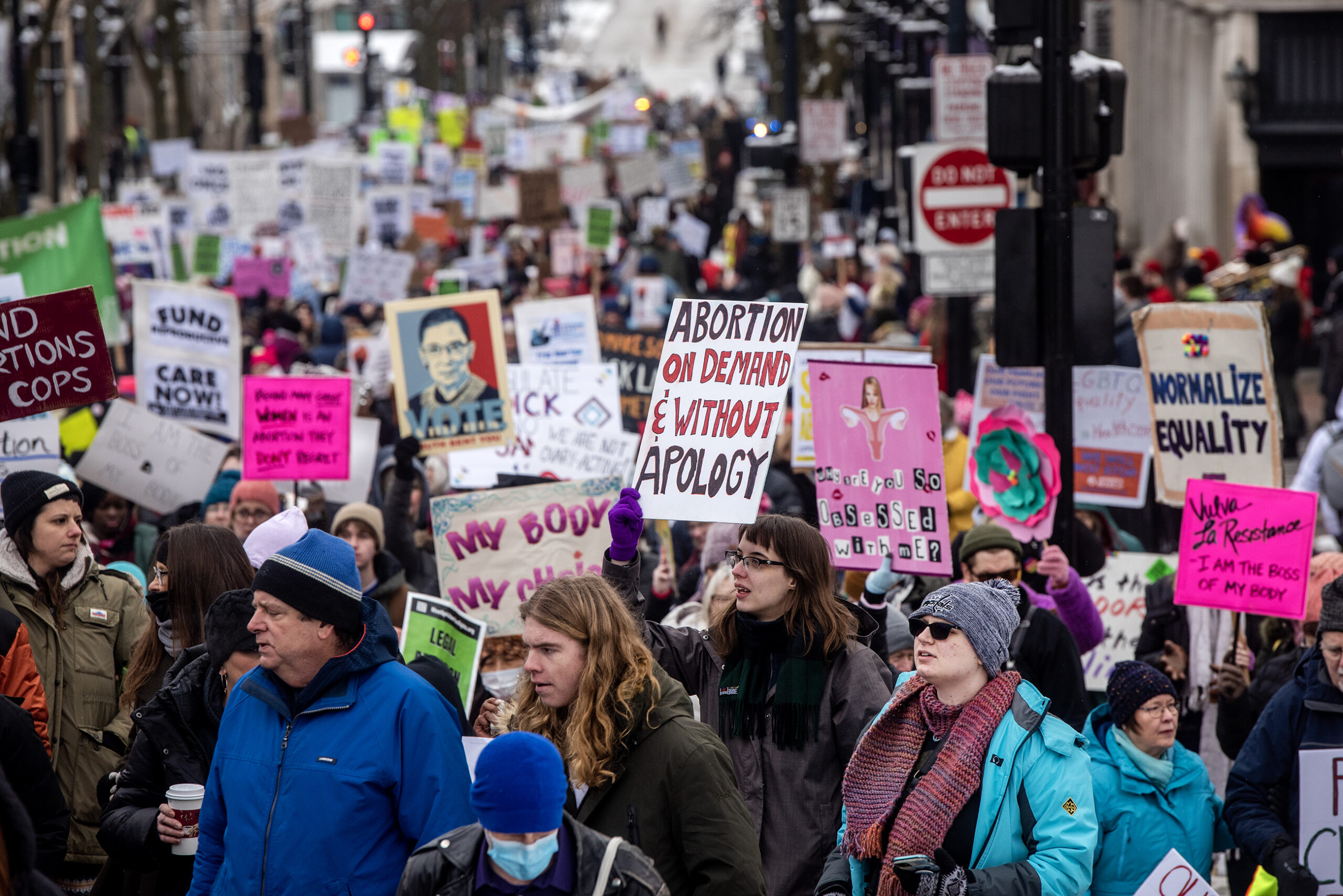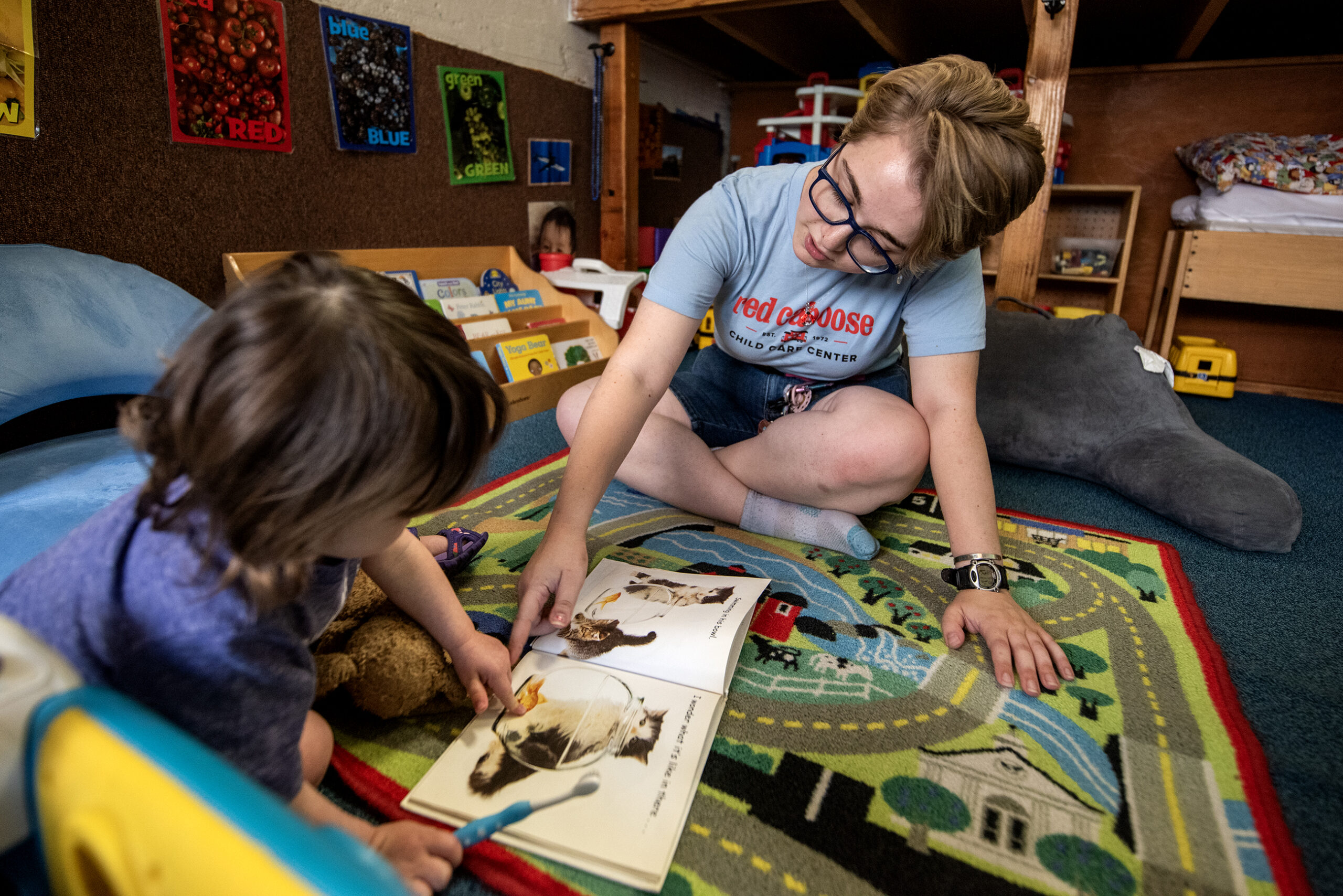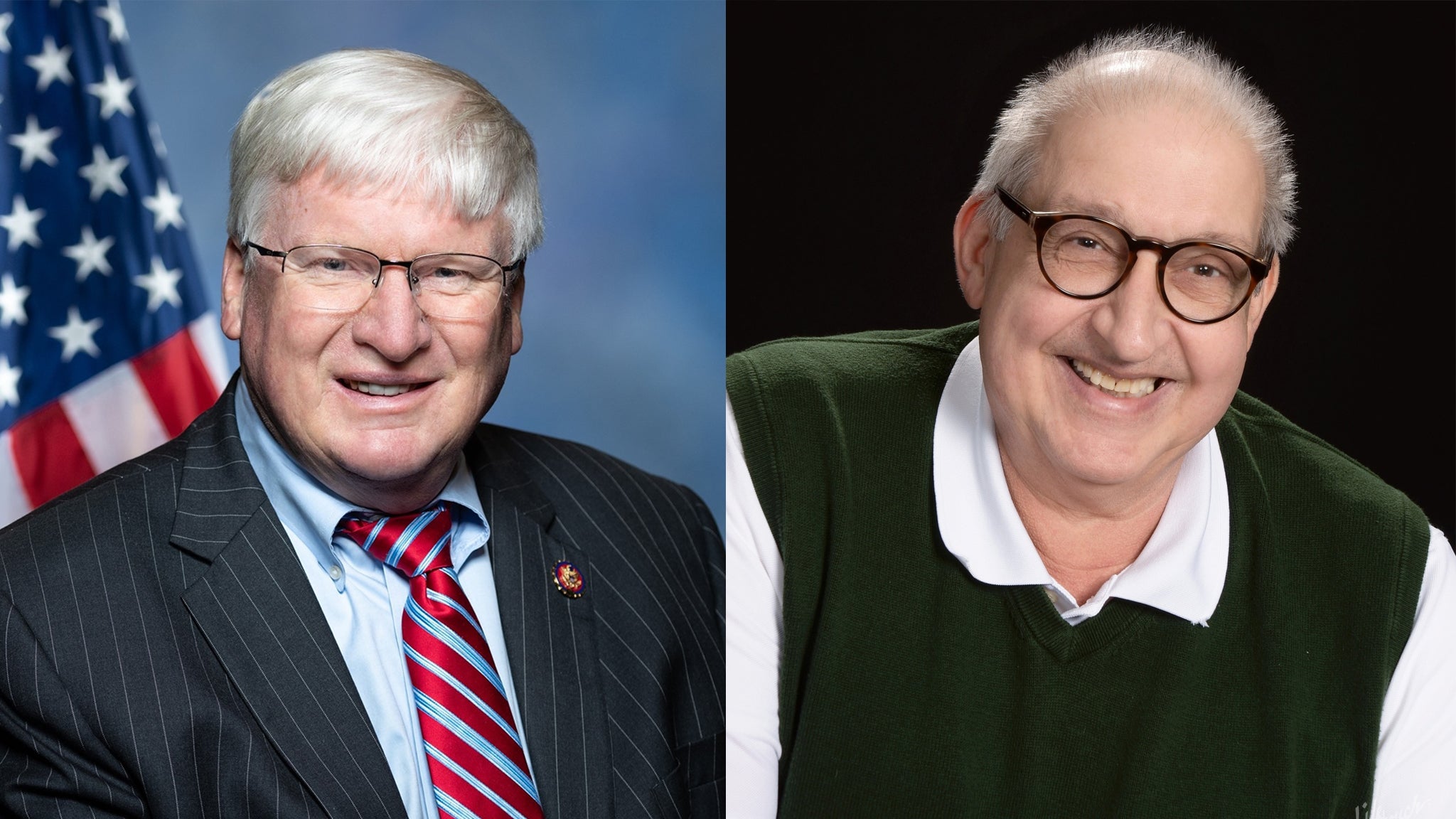Wisconsin voters face no shortage of pressing questions in the 2024 election, but a handful of state Senate races could have big implications for who controls state government in 2026.
For the first time in a decade-and-a-half, both parties have a real shot at winning control of the state Legislature, thanks to new legislative maps, which were drawn by Democratic Gov. Tony Evers and passed by Republican legislators under pressure from the liberal majority on the Wisconsin Supreme Court.
In the Assembly, where all 99 districts are up for election every two years, competitive races in around a dozen districts could decide who controls the chamber this year. But in the Senate, where lawmakers serve staggered four-year terms, only half of the districts are on the ballot.
Stay informed on the latest news
Sign up for WPR’s email newsletter.
Republicans currently hold a 22-10 majority in the Senate with one district vacant, meaning that if Democrats want a realistic chance at winning the chamber, they’d need to flip three to four seats this year, and two or three more in 2026.
If Democrats win majorities in the Senate and Assembly, and win the governor’s office in 2026, the “trifecta” would give them the power to set the agenda in state government, the same way Republicans did from 2011 to 2019 when Gov. Scott Walker was in office.
But if Republicans hold their ground this year, they could make it tough for Democrats to flip the Senate for years to come.
Here are a few of the districts that could tip the balance.
In south central Wisconsin, first-time candidate faces longtime incumbent
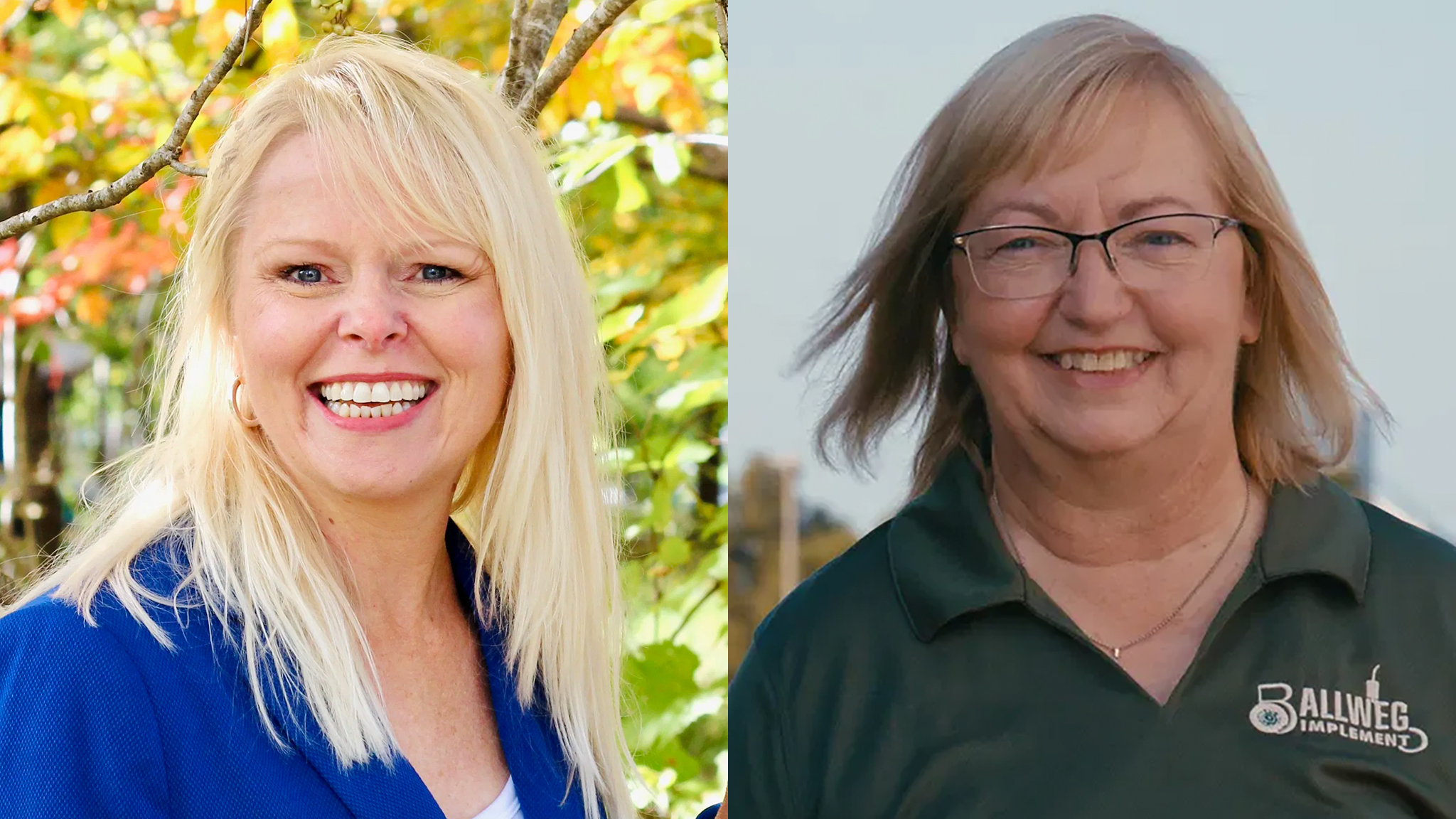
In south central Wisconsin, a completely reshaped district has rewritten the Republican incumbent’s once-easy odds.
Sen. Joan Ballweg, R-Markesan, has represented the 14th Senate District since 2020, and served in the Assembly for 16 years before that. But her old north-south district now runs east-west, shedding much of the rural territory that made it safely Republican and picking up new ground that gives the seat a Democratic lean.
Ballweg says her record of working closely with both Republicans and Democrats to pass legislation will earn her reelection. That included breaking with her party on a bill to regulate transgender students’ participation in sports.
“(I) work in a very bipartisan way,” she said. “Dozens of bills I’ve been able to get signed by both Republican and Democratic governors.”
Ballweg is a former elementary school teacher and, with her husband, has owned and operated a farm equipment dealership for decades. She chairs the Senate’s Committee on Agriculture and Tourism and sits on the powerful Joint Finance Committee. In this rural part of the state, delivering wins for farmers and small communities is an important part of her record, she said.
“Agriculture and tourism are the No. 1 one industries throughout the district, but it still comes back to prices of goods, prices of gas,” she said.
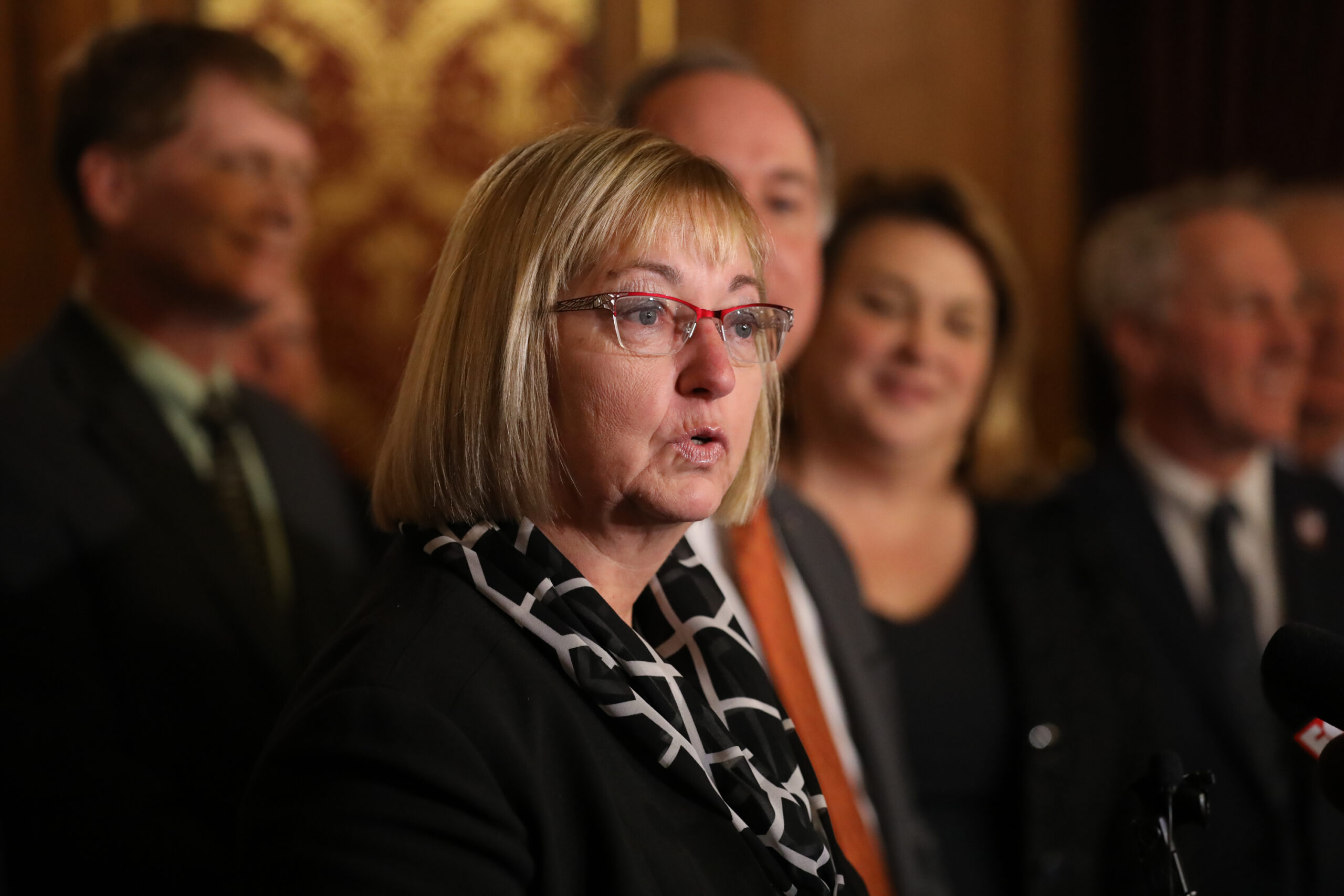
Ballweg’s Democratic challenger, Sarah Keyeski, is a mental health counselor with no previous political experience. A nonprofit that she launched in Lodi, the town where she is raising her six children, sparked a move toward public service.
“It’s been remarkable how many people … resonate with concerns about the mental health of individuals, especially our youth today, and are excited about having somebody speak to these issues in the state Senate,” she said.
Keyeski said focusing on mental health involves addressing its social roots, such as economic anxieties, and plans to focus on education funding, rural development and child care. She also wants to push for universal school lunches.
Voters are “tired of politicians being obstructionists, being too doggedly connected to their party and unwilling to be working across the aisle,” she said.
Her background in mental health, Keyeski said, has prepared her to work across the aisle and serve all constituents, regardless of party.
“As a therapist, I have to work with people that don’t agree all the time,” she said, referring to her work with couples.
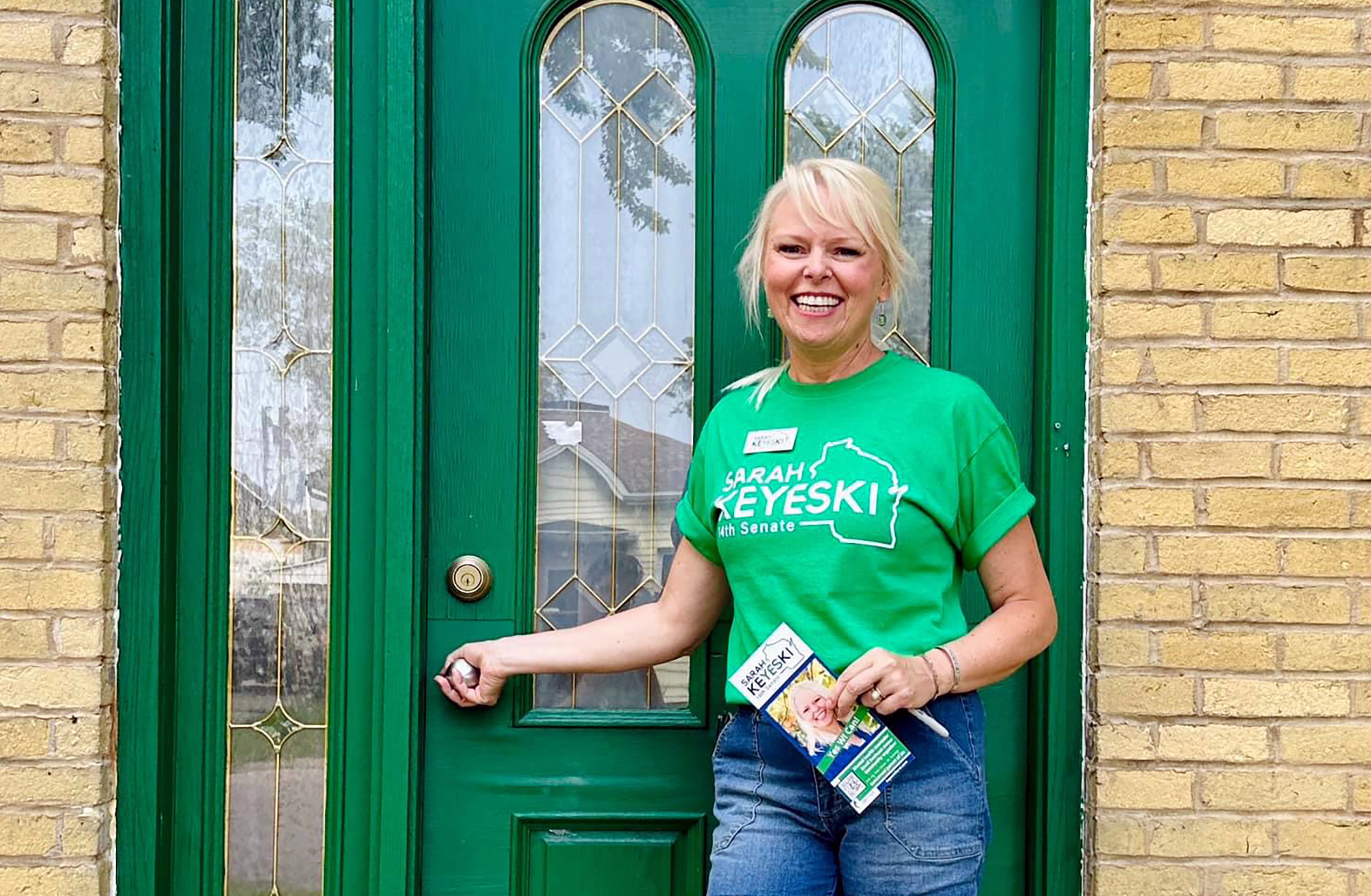
Ballweg won her first Senate race handily, winning by about thirty percentage points. This time around, the race is expected to be close.
The new district now encompasses all of Richland and Sauk counties and portions of several others, including Dane County, a Democratic stronghold. It includes the communities of Richland Center, Reedsburg, Baraboo, Spring Green, Sauk City, Lodi, Portage, Columbus and the Wisconsin Dells. Part of the district also dips into the city of Madison.
According to data compiled by Marquette University, Democratic Gov. Tony Evers would have won the district by about 10 points in 2022, and President Joe Biden would have carried it by about 4 points in 2020.
At a recent candidate forum held at Lodi High School, community members in attendance represented that political spectrum. Attendees took turns asking the candidates about their approach to issues like climate change, student debt and Medicaid expansion. Front-and-center was the issue of abortion.
Ballweg has previously been endorsed by anti-abortion groups. She told WPR that she supports access to contraception and IVF, believes in preserving the life of the mother and is “not looking to make any changes” to Wisconsin’s existing 20-week limit on abortion.
She says her own personal background, including experiencing miscarriages and losing a child born premature, has influenced her stance.
Keyeski says abortion access is central to her platform.
“I fundamentally believe that we should trust women and trust them to make decisions about their bodies, decisions about their medical needs in times and circumstances that we can’t begin to imagine or know,” she said. “As a legislator, I, quite frankly, want to stay out of these decisions.”
The abortion issue has drawn national attention to the race, with outside groups like EMILY’s List spending money here. Keyeski has outraised Ballweg almost two-to-one. According to a WisPolitics review, a majority of her donations came from out-of-state.
New maps put Green Bay front and center in races for Legislature

Perhaps nowhere has the effect of the new maps been felt more dramatically than in Green Bay, where new districts in both the Assembly and Senate could tip the balance in the Legislature.
The new 30th state Senate District includes much of the city of Green Bay, along with neighboring De Pere, Ashwaubenon, Allouez and Bellevue. With no incumbent, both candidates are getting to know voters.
In mid-October, small business owners filtered into a room in Hinterland Brewery in Ashwaubenon, across the street from Lambeau Field, for a roundtable discussion on the economy. They heard from the Democratic candidate, Jamie Wall, who made reference to redistricting as he introduced himself.
“What’s happened here with the new maps has brought on a chance to bring a breath of fresh air to Madison,” Wall said.
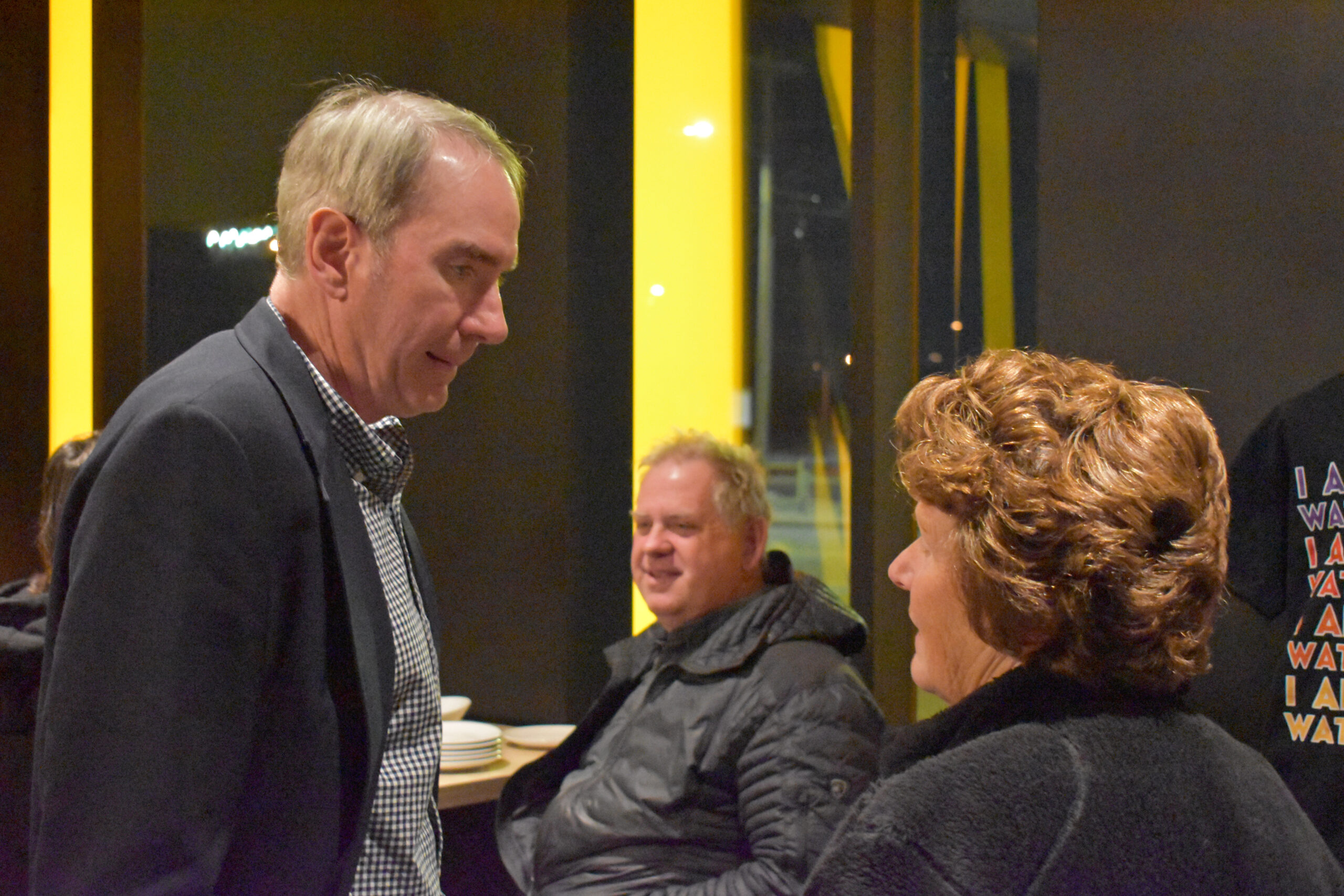
Wall is a business consultant who grew up on a dairy farm in Brown County and lives in Green Bay. In the early 2000s, he was an administrator for the now-abolished state Department of Commerce. Wall also ran unsuccessfully for the U.S. House in 2012.
Wall said he wants to bring the problem-solving skills he’s learned working with businesses to Madison, where he says the art of compromise has been lost.
“There are a lot of issues, if you could put five reasonable people in a room for an afternoon, you could come out with something that most people would get on board with,” he said.
Wall faces Republican Jim Rafter, who has been on the Allouez Village Board for the past decade, spending the last eight years as president. Rafter spent his career working in the tech sector, helping corporations and nonprofits implement technology.
Rafter said he wants to go to Madison to help address the challenges facing local municipalities.
“There’s not a lot of representation down in Madison of people who have been in local government,” he said. “I think it’s terribly important because we need state government’s help for that.”
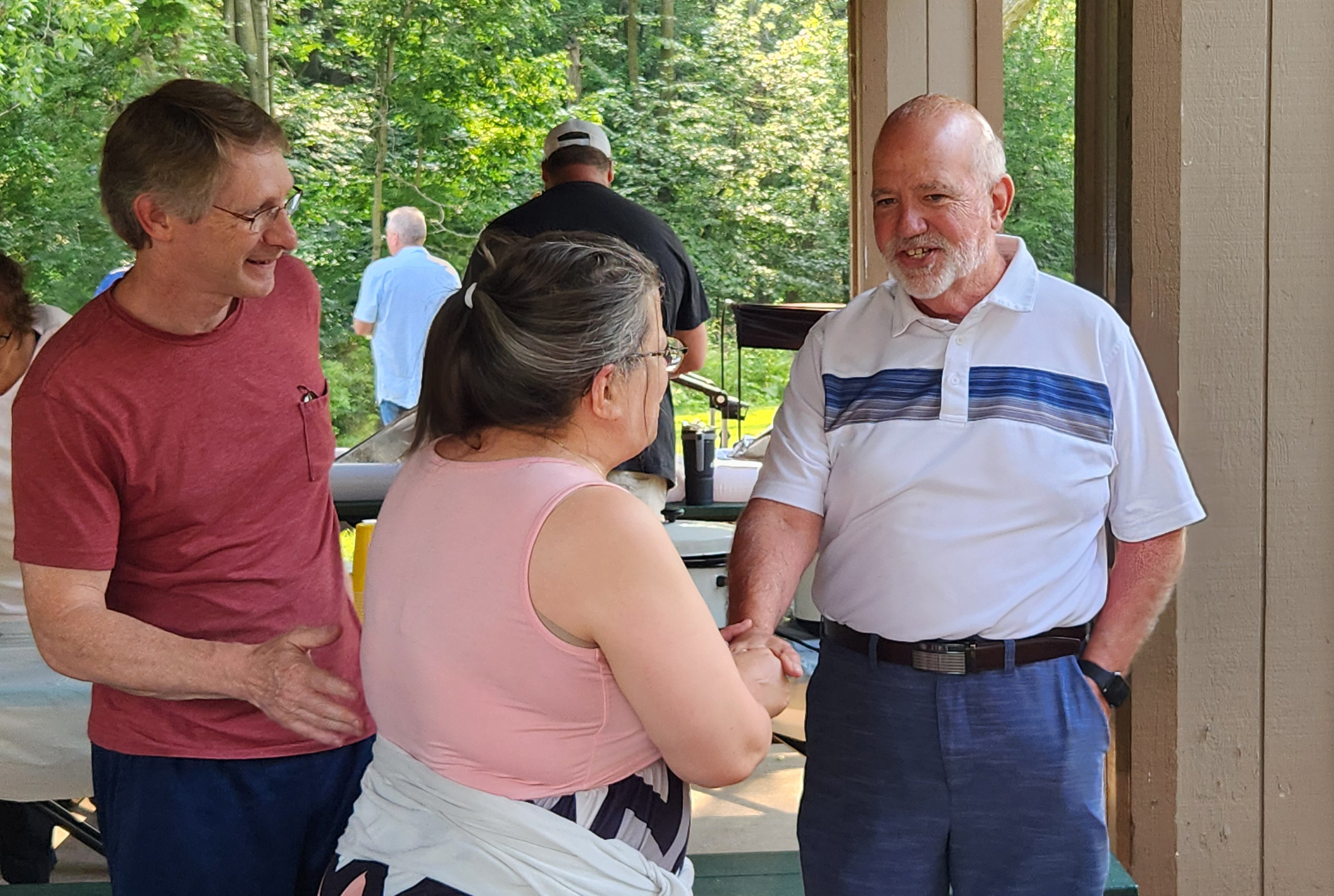
Abortion is one of the key issues in the 30th District. Wall said he would support codifying Roe v. Wade into state law, while Rafter said he wanted to find areas of compromise when it came to abortion.
Rafter said no one he’s talked to while canvassing “wants to see a woman go through an abortion,” but said he supports abortion access in cases of rape, incest or to protect a mother’s life.
“We have to increase access to birth control. If we do that, the majority of abortions will be eliminated,” he said. “Secondly, we have to give women the opportunity to know that they’re pregnant and to make an informed decision.”
Wall said he believes the government should not be involved in women’s health care decisions.
“No one is out there saying that, ‘abortion is a wonderful thing,’” he said. “But it’s part of health care for women in many cases, and I think that’s a decision that women should make without politicians being involved in it.”
Local issues are also at play here, and the candidates have differing views on the future of Green Bay Correctional Institution, a 126-year-old maximum security facility in Allouez that has come under intense scrutiny this year.
Both candidates said more needs to be done to rehabilitate nonviolent offenders and offer them job training resources. But Rafter said the century-old facility has “outlived its useful life,” and a new prison is necessary.
“We’re going to need some kind of a prison, we will, because there’s a faction that will always be in prison, and they are dangerous people,” he said.
Wall said he believes more needs to be done to reduce the inmate population, and more study is needed before building a new prison.
“You wouldn’t build a new manufacturing facility unless you were sure there was a need for whatever it was going to produce — those conversations have to go hand in hand,” he said.
Before redistricting, the 30th Senate District stretched north to Marinette, and favored Republicans. It’s been held by Sen. Eric Wimberger, R-Green Bay, since 2021, but this year, he’s running in the adjacent 2nd Senate District, a seat with a strong Republican lean.
In recent elections, the 30th District has leaned Democratic. In 2022, Evers would have carried it by about 7 points. Four years ago Biden would have won it by about 3.
Suburban race tightly contested under new maps

Just last year, Whitefish Bay Democrat Jodi Habush Sinykin narrowly lost a special election to represent Wisconsin’s 8th Senate District.
This time around, as she knocked on doors on a chilly fall day in Cedarburg, she said she was doing everything in her power to close that gap.
“This district has been trending blue for some time,” Sinykin said. “We will see soon enough whether or not those predictions play out.”
Sinykin faces Sen. Duey Stroebel, a Republican from Saukville in a state Senate race that is, by the numbers, about as competitive as they come.
Wisconsin’s 8th Senate District includes parts of Milwaukee County and also Waukesha, Washington, and Ozaukee Counties, also known as the WOW Counties. The area has historically been a Republican stronghold, but it’s been trending Democratic in recent years.
Sinykin, an attorney who specializes in environmental law, is a partner at the Milwaukee-based Habush Habush and Rottier. She said she decided to run for public office two years ago.
“I have seen an increased divisiveness and dysfunction, just an absolute lack of progress in our state’s legislature,” she said.
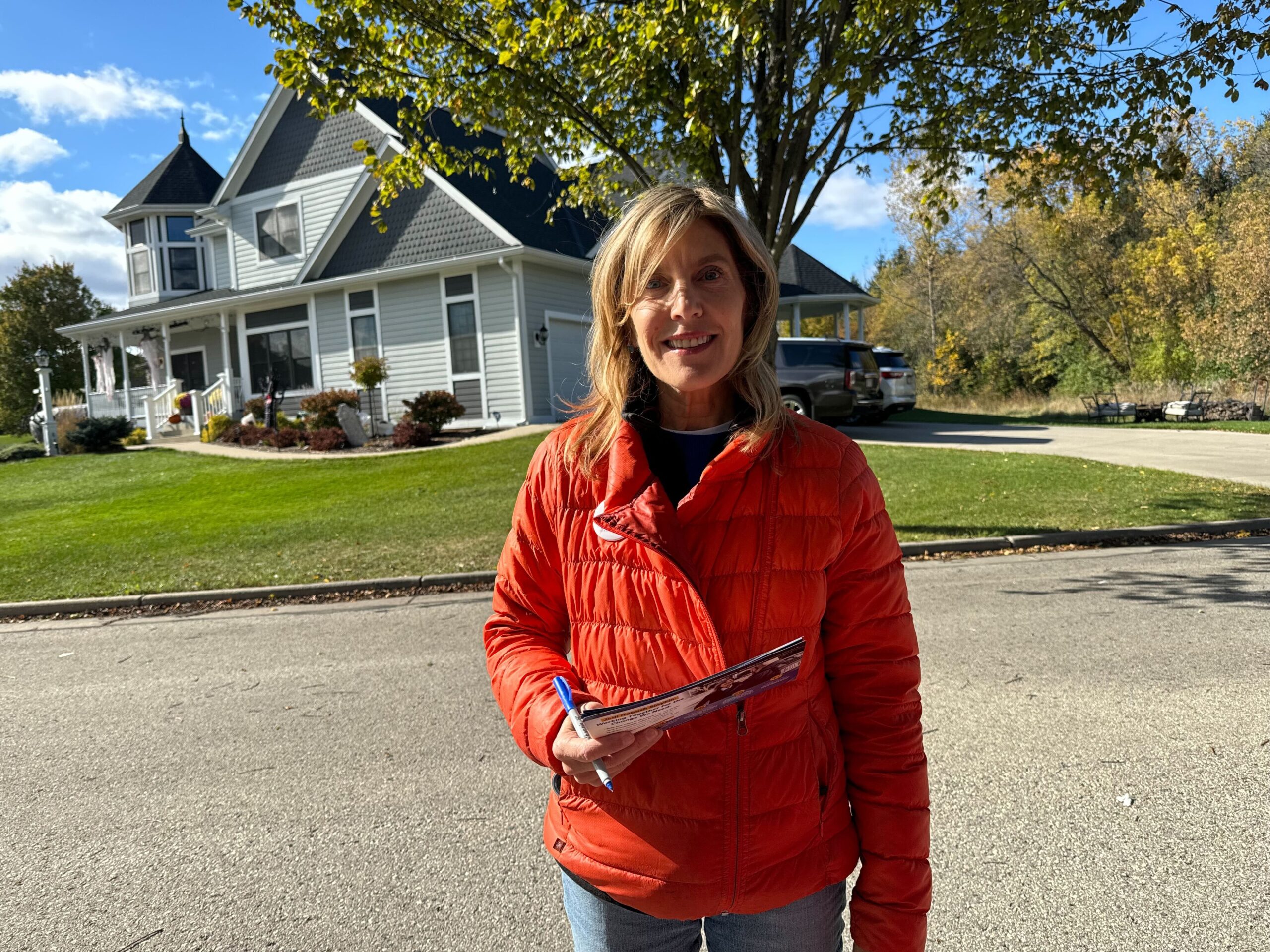
Stroebel is running for the seat currently held by Republican Sen. Dan Knodl, who decided to run for a state assembly seat instead. While Stroebel is a sitting lawmaker, the district is about 80 percent new to him.
In an interview with WPR, Stroebel said he’s also been knocking on doors to persuade voters to vote for him on Nov. 5.
“One thing that folks are really telling me constantly, they’re concerned about the cost of living, how much that has risen, and we’re talking everybody, working families, business owners, those on fixed incomes,” Stroebel said. “They’re all feeling the squeeze on these prices and how it’s effecting their lifestyle.”
Stroebel is the vice-chair of the Legislature’s Joint Committee on Finance. In order to help with the cost of living, he wants to send the state’s multi-billion dollar surplus back to taxpayers.
“Our taxpayers are hurting from this inflation,” Stroebel said, adding that the state’s budget surplus could “help them buy their groceries, afford their housing.”
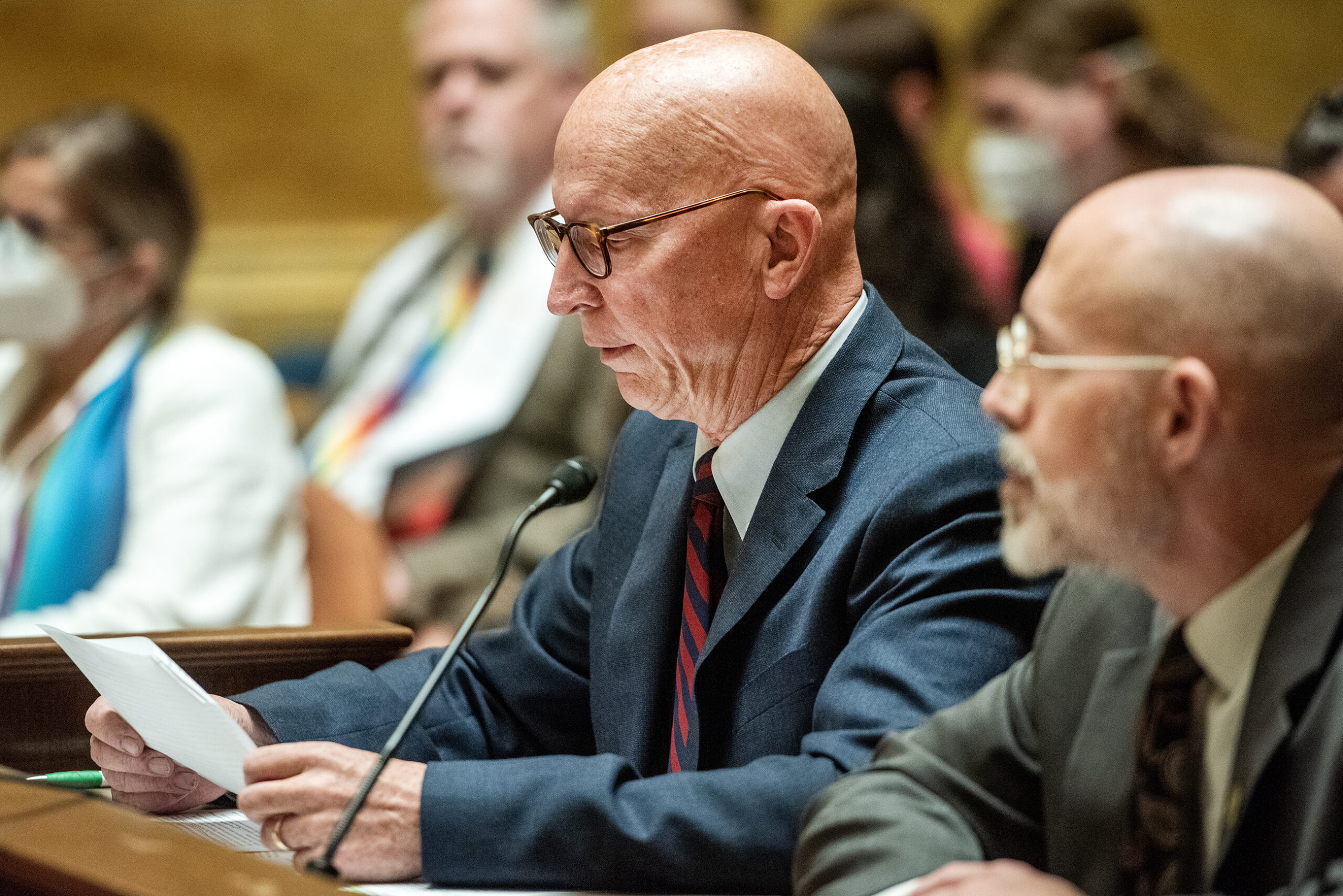
Sinykin said providing resources to local communities, investing in the Universities of Wisconsin and protecting the state’s natural resources are important issues she’s focused on.
Last year, state lawmakers passed a bipartisan measure to send more money to local municipalities across the state. However, some local governments are still hurting financially.
“I do want to have investments in our local communities and give them greater autonomy,” Sinykin said about that issue.
Stroebel, who voted for the local government funding bill, said he supports further “dialogue” on that issue.
Abortion has been a key issue in the suburbs, and this race is no exception. Sinykin’s website said she thinks decisions about pregnancy should be made by women, and not “by far-right politicians in Madison.”
“I am very, very much in favor of reproductive access and reproductive care access, and want to codify Roe v. Wade,” Sinykin told WPR.
In 2020, Stroebel was endorsed by Pro Life Wisconsin, a group that supports candidates who “recognize the personhood of the preborn baby and hold the principled and compassionate no-exceptions pro-life position,” according to its website.
In an interview with WPR, Stroebel confirmed his anti-abortion stance.
“I think this decision on abortion is too important for politicians to make the call,” Stroebel said. “I think we need to have a referendum. I think we need to let the public weigh in and let them decide where we should be on this matter.”
Money is pouring into the race. According to Open Secrets, Sinykin has raised almost $1.2 million so far. Stroebel has brought in over $700,000.
An analysis of the district by Marquette University research fellow John Johnson found the new seat has a slight Republican lean, but it has supported both Republicans and Democrats in recent elections. In 2022, Evers would have won the district by about 2 points while Republican U.S. Sen. Ron Johnson would have carried it by about 3. In 2020, Biden would have won the district narrowly, while in 2016, it would have gone to former President Donald Trump by about 7 points.
“There are ticket splitters in the 8th District,” Johnson said.

Setting up 2026
The new map gives Democrats a sizable advantage in a fourth district, the 18th, which is currently held by Republicans. In that race, Democrat Kristin Alfheim faces Republican Anthony Wayne Phillips, both of Appleton.
Should Democrats flip all four of the districts — the 14th in south central Wisconsin, 30th in Green Bay, the 8th in the suburbs and the and 18th in the Fox Valley — they’d have to win two more seats in 2026 to capture a majority in the Senate. That is possible under the new map, which puts Republicans on defense in three competitive districts in the next election.
Editor’s note: Anya Van Wagtendonk reported from Madison, Joe Schulz reported from Green Bay and Evan Casey reported from Milwaukee. This story was updated to reflect the current party divide in the Senate.
Wisconsin Public Radio, © Copyright 2025, Board of Regents of the University of Wisconsin System and Wisconsin Educational Communications Board.



